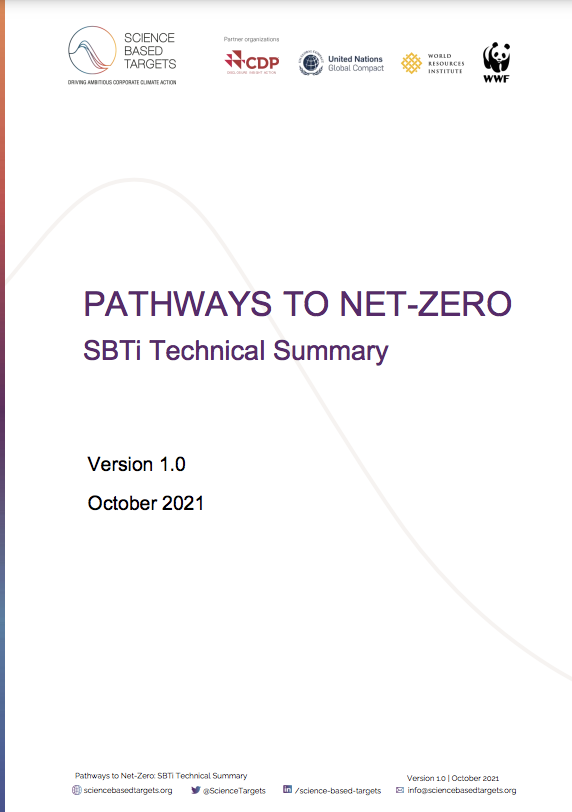The Science Based Targets initiative (SBTi), the global body enabling businesses to set emissions reduction targets in line with science, today launches the world-first Net-Zero Corporate Standard. To combat this, the SBTi’s Net-Zero Standard is the world’s first science-based certification of companies’ net-zero targets in line with the Paris Agreement’s goal of keeping planetary warming to 1.5°C.
Alberto Carrillo Pineda, Co-Founder and Managing Director of the SBTi, said: “Companies are currently self-defining net-zero targets without credible and independent assessment of their ambition and integrity.“For the first time, the SBTi Net-Zero Standard offers companies robust certification to demonstrate to consumers, investors and regulators that their net-zero targets are reducing emissions at the pace and scale required to keep global warming to 1.5°C. We’re now inviting all companies with net-zero targets and ambitions to show stakeholders that their decarbonization pathway is aligned with science. And the rest of the business sector – we call on you to join the Race to Zero.”
The first seven firms to have their net-zero targets certified as part of the SBTi’s pilot scheme are unveiled today. They are: AstraZeneca (UK), CVS Health (US), Dentsu International (UK), Holcim (Switzerland), JLL (US), Ørsted (Denmark), and Wipro (India). More companies are now invited to commit to set net-zero targets, which the SBTi will begin validating from January 2022.
90%+ decarbonization by 2050 is the only route to science-based net-zero
Companies adopting the Net-Zero Standard will be required to set both near- and long-term science-based targets across all scopes.1 Near-term targets cover immediate emissions reductions for the next 5-10 years, while long-term science-based targets determine the total level of decarbonization by 2050 or before.
Through the standard, the SBTi clarifies that science-based net-zero requires companies to achieve deep decarbonization of 90-95% before 2050.2 At that point, a company must neutralize any limited residual emissions that are not yet possible to cut. However, the SBTi sets clear parameters that these residual emissions – which must be neutralized through carbon removals – cannot exceed 5-10% of a company’s emissions depending on its sector. Neutralization activities can take the form of technological removals (i.e. Direct Air Capture (DAC) with geological storage) and nature-based solutions (i.e. reforestation).
The principle at the heart of the SBTi Net-Zero Standard is the “mitigation hierarchy”. This means companies should address value chain emissions and implement strategies to achieve these targets as the main strategy to reach net-zero emissions.
The SBTi recognizes the urgent need to scale up near-term finance to help address the nature and biodiversity crisis and increase the likelihood the global economy limits warming to 1.5°C. Given that, the Standard recommends companies make investments to reduce emissions outside their value chains. However, these investments should be in addition to, not a substitute for, rapid and deep reductions of a company’s own emissions.
Furthermore, the role of finance in corporate decarbonization is vital for the world to reach net-zero emissions. The SBTi is therefore leading efforts to define and develop metrics around what net-zero looks like for financial institutions to decarbonize the real economy and is launching its Net-Zero Foundations for Financial Institutions: Draft for Public Consultation on 10 November 2021.
Developing the first-ever science-based net-zero target
The Net-Zero Standard was developed in consultation with an independent Expert Advisory Group, made up of experts from academia, civil society, science and business. More than 80 companies took part in a road-test of the Standard in August 2021.
The Expert Advisory Group will continue to refine and develop the Standard in early 2022, specifically looking at best practice in beyond value chain mitigation and how to further support companies in reducing scope 3 emissions.
To date, more than 600 companies have made a commitment to reach science-based net-zero before 2050 through the SBTi’s Business Ambition for 1.5°C campaign. Companies can commit to setting a science-based net-zero target, join this campaign and the UNFCCC Race to Zero on the SBTi website.



